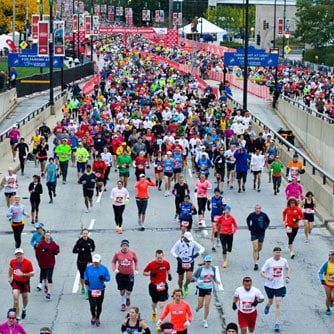Whereas regular physical activity generally improves health, strenuous exercise might transiently increase cardiac risk. Eric Larose, from the Institut universitaire de cardiologie et de pneumologie de Quebec (Canada), and colleagues studied 20 recreational distance runners, ages 18 to 60 years, who were scheduled to take part in the Quebec City Marathon and who had no known cardiovascular disease or drug treatment. The participants were all amateur runners. The runners were extensively observed and tested six to eight weeks before the marathon and on the day itself. They were tested again within 48 hours after completing the marathon, including a second MRI study and final blood sampling. All runners with decreased left ventricular ejection fraction (LVEF), a measure of cardiac pumping efficiency, after the race compared with baseline underwent a third MRI study after three months of rest to check whether it had reversed. The researchers noted that the race induced a decrease in left and right ventricular function in half of the amateur distance runners. When a lot of the heart was affected, the heart also showed swelling and reduced blood flow. They also found that heart muscle changes were more common and widespread in runners with lower fitness and less training. Observing that these changes were transient, the study authors write that: “Completing a marathon leads to localized myocardial edema, diminished perfusion, and decreased function occurring more extensively in less trained and fit runners. Although reversible, these changes might contribute to the transient increase in cardiac risk reported during sustained vigorous exercise.”
Health Hazards of Intense Exercise
Valerie Gaudreault, Helena Tizon-Marcos, Paul Poirier, Philippe Pibarot, et al. “Transient Myocardial Tissue and Function Changes During a Marathon in Less Fit Marathon Runners.” Canadian Journal of Cardiology Vol. 29, Issue 10, Pages 1269-1276, October 2013.




